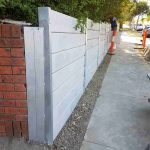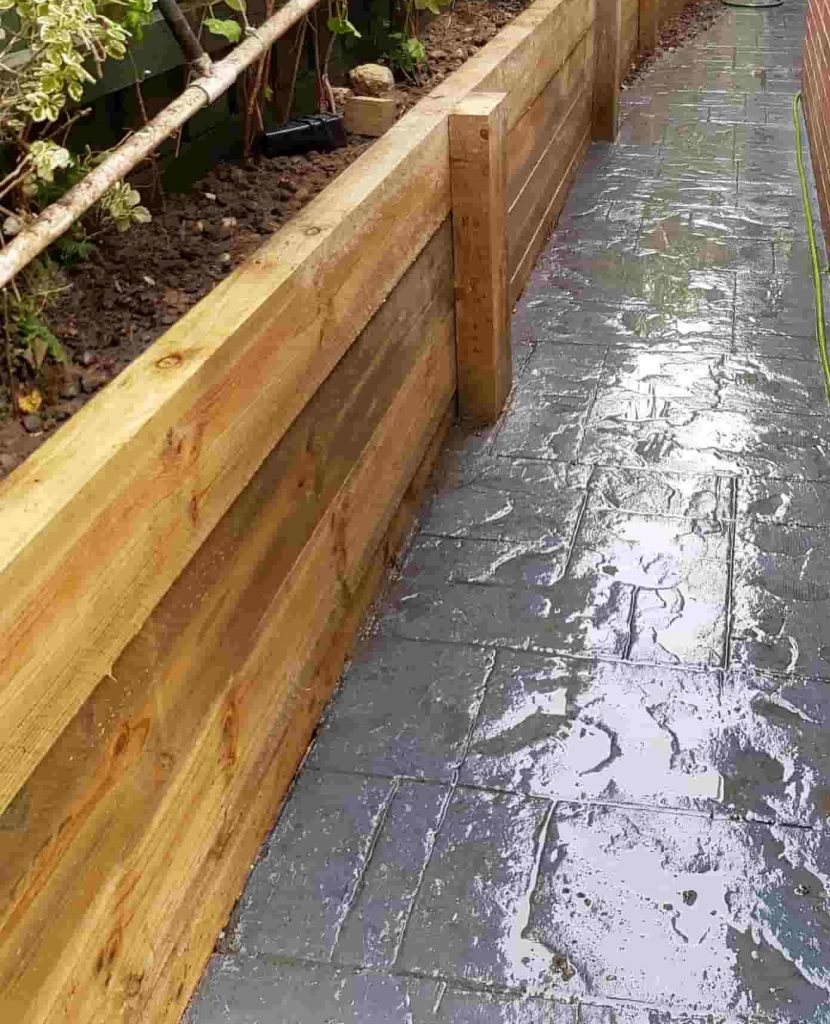Introduction
When it pertains to landscaping and property management, one often neglected yet vital element is the building of keeping walls. These structures not only include visual value to a home but also serve important functions such as soil retention and drainage control. In the last few years, the demand for retaining wall professionals has actually risen, especially for local knowledge in the field.
Hiring a local retaining wall builder can be a game-changer for your job. Not only do they possess intimate knowledge of local soil conditions and weather patterns, but they also bring valuable insights into neighborhood regulations and visual choices. This post digs deep into the myriad advantages of hiring a local retaining wall home builder and how their competence can raise your outside spaces.
Understanding Retaining Walls
What is a Keeping Wall?
A retaining wall is a structure created to hold back soil and prevent disintegration or landslides. It's usually made from products like concrete, wood, stone, or brick. The primary purpose of these walls is to create level areas on sloped surfaces, making sure that gardens, outdoor patios, and other outdoor elements are steady and usable.
Types of Keeping Walls
Timber Sleeper Retaining Wall
Timber sleeper walls are built from large wooden beams that can withstand the pressure put in by soil behind them. They use a rustic look that blends well with natural landscapes.
Concrete Sleeper Retaining Wall
Concrete sleeper walls are robust alternatives that supply sturdiness and low upkeep. They are available in various designs and colors, allowing for imaginative landscaping options.
Brick Retaining Wall
Brick walls use a sophisticated visual while supplying strength. They are frequently utilized in property settings where visual appeal is important.
Stone Keeping Wall
Stone walls are perhaps the most standard form of maintaining walls. Their natural appearance adds beauty to any landscape while successfully holding back soil.
The Benefits of Working with a Local Retaining Wall Builder
Expertise in Regional Soil Conditions
Local contractors have indispensable knowledge about the specific soil key ins your location. Soil quality impacts drain and stability; hence, understanding these factors is important for successful installation.

Familiarity with Regional Regulations
Every area has its own building codes and restrictions regarding building and construction tasks. A regional retaining wall professional will know these guidelines completely, mitigating potential legal concerns down the line.

Accessibility and Communication
Choosing a local contractor implies much easier communication and gain access to throughout your project. You can go over ideas in person instead of relying exclusively on calls or emails.
Quick Action Times
Local professionals can react quicker to modifications or emergencies throughout building and construction due to proximity. This can significantly lower hold-ups in your project timeline.
Community Track record Matters
Hiring someone within your community implies they're more likely to appreciate their credibility amongst next-door neighbors. This typically leads to higher quality work as they aim to keep positive word-of-mouth referrals.
Cost-Effectiveness: The Local Advantage
While some might assume that working with locally could be more pricey, this isn't always true. Local specialists typically have developed relationships with suppliers, which might cause lower product expenses passed onto you.
How to Select Your Regional Retaining Wall Builder?
Researching Possible Contractors
Start by searching for "retaining wall contractor near me" or "retaining wall builder near me." Look at reviews on platforms like Google My Organization or Yelp.
Checking Credentials and Experience
Ensure that your picked contractor has the essential qualifications and experience particular to retaining wall installation.
Requesting Quotes and Comparisons
Don't settle for the first quote you get. Gather multiple quotes from various home builders so you can compare rates together with services offered.
Reviewing Previous Projects
Ask possible contractors if you can see examples of previous work comparable to what you're envisioning for your project.
Common Products Used by Retaining Wall Builders
|Material Type|Benefits|Drawbacks|| ------------------------------|-------------------------------------------------------|----------------------------------------|| Timber Sleeper|Natural appearance; reasonably affordable|Vulnerable to rot in time|| Concrete Sleeper|Low maintenance; long lasting|Can be more costly upfront|| Brick|Appealing surface; strong|Labor-intensive installation|| Stone|Timeless charm; lasts long|High initial cost|
The Role of Drainage in Keeping Walls
Importance of Proper Drainage Systems
Drainage is paramount when constructing retaining walls as it prevents water accumulation behind the wall which might result in structural failure over time.
Common Drain Solutions
Local specialists will recommend solutions such as weep holes or drain pipes developed particularly for maintaining walls based on local conditions.
The Process of Retaining Wall Installation
Initial Consultation Site Assessment Design Approval Material Selection Excavation Foundation Preparation Construction Phase Final InspectionEach step requires precision and competence-- a best match for local retaining wall builders who comprehend local subtleties much better than anyone else!
FAQs
Q: What kind of retaining wall is best for my property?
A: It depends on different elements including looks, budget, and soil conditions; speaking with a regional professional will supply customized advice.
Q: How long does it take to construct a retaining wall?
A: Building and construction timelines differ based upon size and complexity however usually range from one day to several weeks.
Q: Do I need licenses for my retaining wall?
A: A lot of towns need authorizations for substantial installations; consult your local specialist https://tuffstuffretainingwalls.com.au/ who will direct you through the process.
Q: What products last longest for keeping walls?
A: Stone is usually considered among the most durable alternatives available due its resistance against weathering over time.
Q: Can I build my own keeping wall?
A: While DIY tasks are possible, working with a skilled installer often guarantees better quality workmanship that adheres to local regulations.
Q: Are there eco-friendly alternatives available?
A: Yes! Many modern products are environmentally friendly; seek advice from your regional builder for sustainable options tailored particularly for your needs.
Conclusion
In summary, hiring a local retaining wall builder uses many benefits varying from expert understanding about regional soil conditions to swift response times throughout jobs. With their familiarity with community regulations plus access to top quality products at competitive rates, these professionals embody both reliability and efficiency-- necessary qualities in any building and construction endeavor!
Whether you desire aesthetically pleasing landscaping enhancements or practical options like disintegration control, investing in experienced specialists guarantees you make notified choices customized specifically toward accomplishing enduring outcomes with every task! So when thinking about "the advantages of working with a regional retaining wall home builder," keep in mind-- you're not just getting a service; you're protecting peace of mind knowing specialists are dealing with the job!